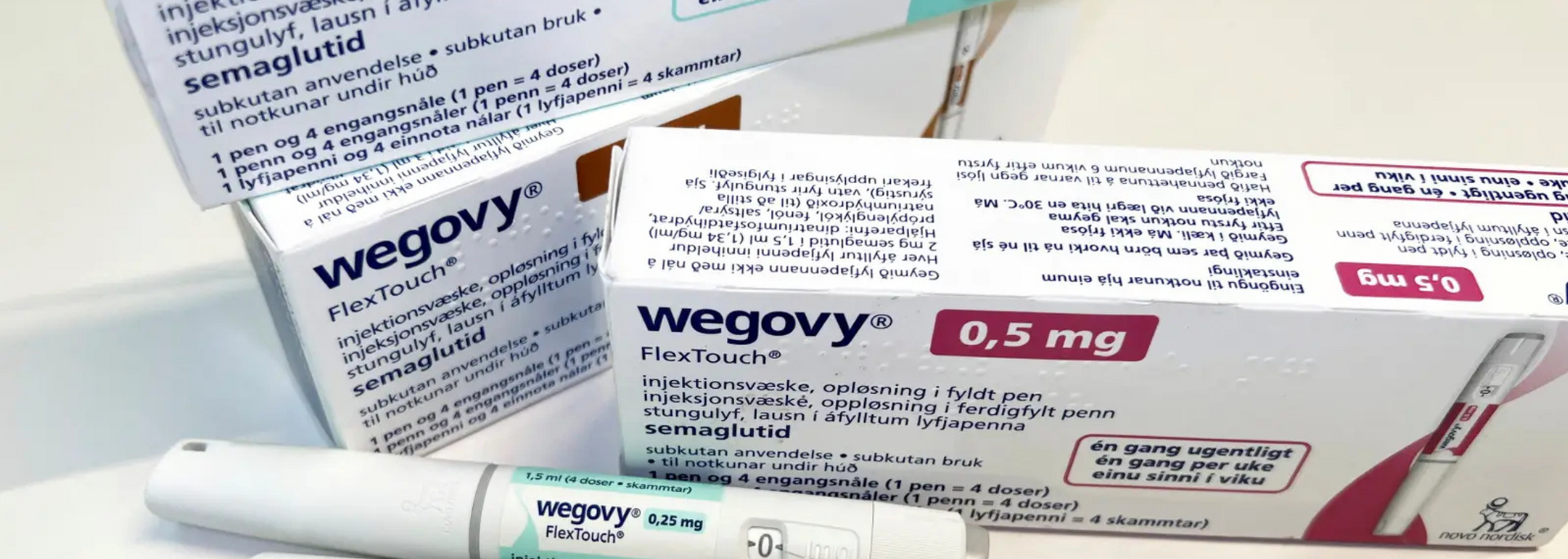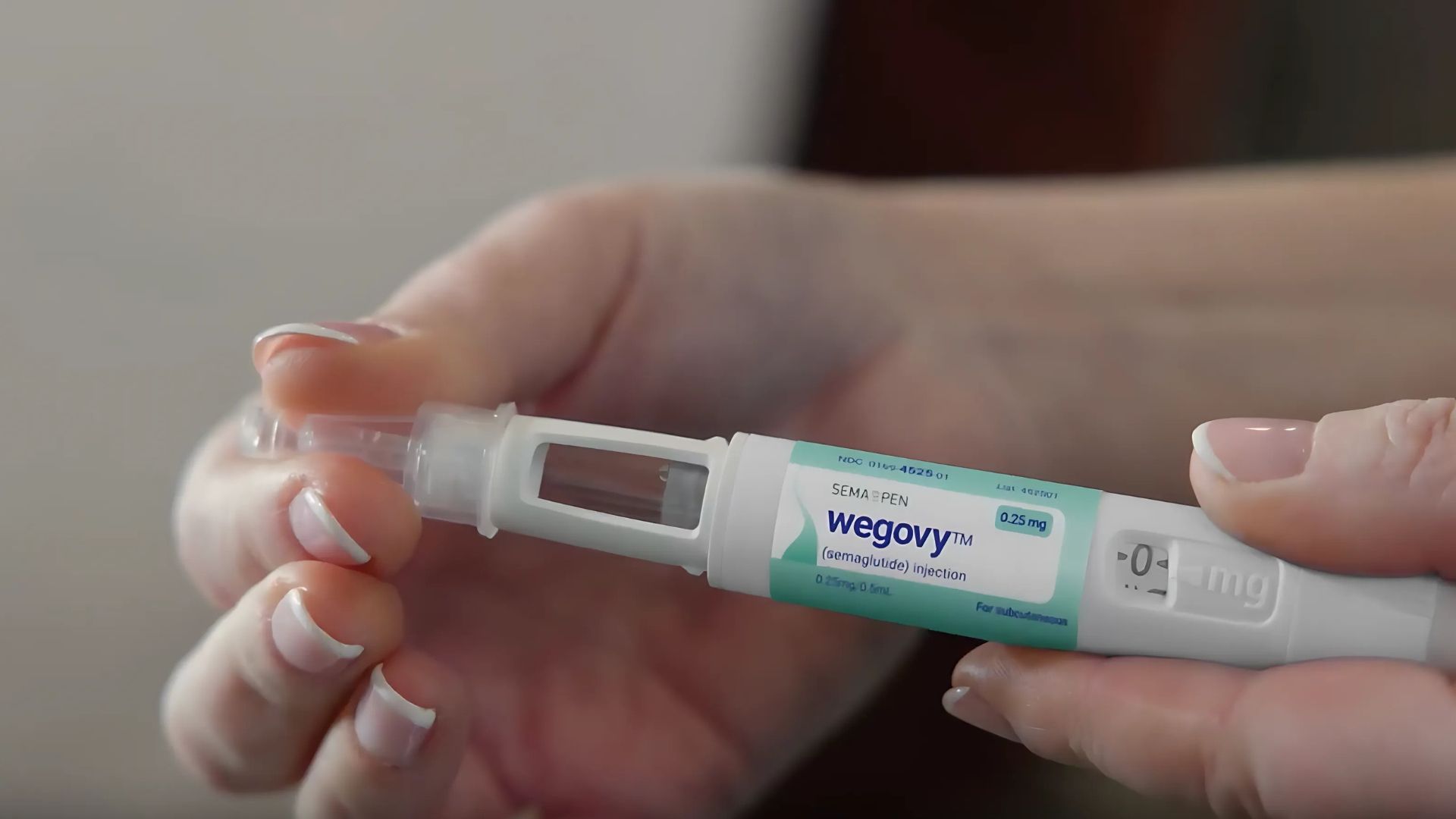Wegovy (Ozempic) alternatives: what are your options?
What are the alternatives to Wegovy (Ozempic)? How do they compare? Explore your options in our guide.

If you're exploring weight loss treatments, you might find it useful to compare your options side by side.
One treatment that's gaining popularity is the injectable weight loss medication Wegovy. But there are many other treatments available, ranging from diet and exercise to weight loss tablets and other types of injectable drugs.
Are you considering a Wegovy treatment programme? In this guide, we compare and contrast Wegovy against several other medical treatment options.
Let's start by making sure we all understand what Wegovy is and how it works.
What is Wegovy?
Wegovy is a weight loss medication that you administer yourself at home using a special injection pen. It has the active ingredient semaglutide.
The drug has been extensively tested and clinically proven to be effective. In one clinical trial, Wegovy users achieved an average weight loss of 15% on a managed 68-week programme with diet and exercise.
Wegovy works by mimicking GLP-1 – one of the hormones involved in digestion. This hormone is involved in slowing down digestion, regulating blood sugar levels and helping to control food cravings.
Wegovy tricks your body into thinking you have more GLP-1. The result is that you feel full for longer and need to eat less to become full. After a while, it becomes easier to eat less and, as a result, you lose weight.
Like any drug, Wegovy can cause side effects. It's important to familiarise yourself with these side effects before you start treatment.
What about Ozempic?
Ozempic is another type of injectable drug that uses the same active ingredient as Wegovy. Some doctors have prescribed Ozempic for weight loss.
However, there are differences between Ozempic and Wegovy. For instance, Ozempic is only approved in the UK as a treatment for type 2 diabetes, not as a weight loss medication. The two drugs also differ in their dosages and the information provided to patients and doctors.

Wegovy alternatives
Oral weight loss medications
If you're needle-phobic, taking tablets may seem easier than or preferable to an injectable medication like Wegovy.
Appetite suppressants
Most oral weight loss medications are appetite suppressants. This means they make you less hungry, so you're less likely to overeat.
These tablets usually need to be taken at least once a day. Some must be taken three times daily.
There are three oral appetite suppressants available in the UK. They are only available on prescription from a private healthcare provider. They are not available on the NHS.
- Diethylpropion. In a clinical trial, participants using diethylpropion lost an average of 10.6% of their starting weight over 52 weeks. Insomnia is a common side effect of diethylpropion.
- Phentermine has been shown to produce an average weight loss of 6.8%.³ Irritability and a fast heart rate are among the common side effects.
- Naltrexone, Bupropion (Mysimba) can help you lose around 4% of your starting weight.⁴ The most common side effects are nausea, vomiting, constipation and headaches.
Lipase inhibitors
There's another oral weight loss medication with the active ingredient orlistat. This is known under several names, including Xenical and Alli.
Orlistat is not an appetite suppressant. It's a lipase inhibitor. It works by slowing down your body's production of lipase, which reduces how much fat you can absorb from food. Lipase is the enzyme your digestive system uses to break down fat in food. You will pass the undigested fat in your stool (poo).
Orlistat can cause side effects like oily poo, oily discharge, farting and needing the toilet more urgently and more often. It can also cause severe diarrhoea if taken with the contraceptive pill.
Xenical (120mg dose)
This is the prescription-strength version of orlistat. With diet and exercise, it can help you achieve weight loss over 12 months of about 9.7% of your starting weight.
Your body is prevented from absorbing about a third of the fat in your food.
Alli and Orlos (60mg)
These are the brand names for orlistat at half strength (60mg). This is the only oral weight loss medication that has approval in the UK to be sold over the counter.
Pharmacists are expected to follow a strict protocol when supplying it. For instance, it's only available to those aged over 18 with a BMI of 28 or greater. There are also guidelines covering how long you can take it for.
At this lower strength, your body will be prevented from absorbing about a quarter of the fat in your food. In a 16-week trial including diet and exercise, those taking it lost an average of 5% of their starting weight.
How do weight loss supplements (diet pills) compare?
Most other 'diet pills' available in the UK are classified as food supplements or herbal medicines. They're not classified as drugs because they haven't been approved by the Medicines and Healthcare products Regulatory Agency (MHRA).
It's difficult to compare weight loss supplements to MHRA-approved drugs like Wegovy because they're not regulated or tested in the same way. While studies have suggested that some of these supplements can help with weight loss, this research is often thin on the ground or of low quality.
It is advisable to do thorough research before taking a weight loss supplement.
To avoid serious side effects, never take more than the recommended dose and do not combine different weight loss supplements.
You should also check the ingredients with your GP if you're taking prescribed medication. Some ingredients can alter how prescription medication works.
What about other injectable medications?
There are two more weight loss injections available in the UK.

The first is liraglutide, which is sold under the name Saxenda. This works similarly to Wegovy – it mimics the hormone GLP-1 to help you feel full for longer.
Saxenda came to market first. It was approved in the UK in 2017. Wegovy was approved in 2023.
A big difference between Saxenda and Wegovy is that you have to take Saxenda once daily. Wegovy only needs to be taken once per week.
Studies suggest that Saxenda is less effective than Wegovy, too. In a head-to-head clinical trial, Saxenda users lost an average of 6.4% of their body weight after 68 weeks, while Wegovy users lost 15.8%.
You can learn more in our guide to the differences between Wegovy and Saxenda.
The other medication is called Mounjaro. It contains the active ingredient tirzepatide.
Tirzepatide has a similar action to the semaglutide in Wegovy. However, as well as mimicking GLP-1, it also mimics another hormone called 'GIP'.
This dual action makes Mounjaro more effective for most people than Wegovy. In an unpublished study called 'SURMOUNT-5', researchers looked at both drugs under identical conditions. They found that, after 72 weeks of treatment, Wegovy users lost 13.7% of their starting weight on average. Mounjaro users, meanwhile, lost an average of 20.2%.
Research and anecdotal reports also suggest that Mounjaro tends to cause fewer and less pronounced side effects than Wegovy.
However, Mounjaro also has several side effects that are rare or absent with Wegovy. These include occasional hair loss and making the contraceptive pill work less effectively.
Always refer to the manufacturer's websites for up-to-date information on side effects:
SemaPen helps people lose weight with a range of clinically proven medical treatments for obesity. That includes the weight loss injections Mounjaro and Wegovy. For more expert advice, read our free online guides.
Sources
1. Wilding, J.P.H. et al. (2021) "Once weekly semaglutide in adults with overweight or obesity" New England Journal of Medicine, 384(11) https://doi.org/10.1056/NEJMoa2032183
2. Cercato, C. et al. (2009) "A randomized double-blind placebo-controlled study of the long-term efficacy and safety of diethylpropion in the treatment of obese subjects" International Journal of Obesity 33, 857–865 https://doi.org/10.1038/ijo.2009.124
3. Tak, Y.J., & Lee, S.Y. (2021) "Long-Term Efficacy and Safety of Anti-Obesity Treatment: Where Do We Stand?" Current Obesity Reports, 10(1) https://doi.org/10.1007/s13679-020-00422-w
4. Chakhtoura, M. et al. (2023) "Pharmacotherapy of obesity: an update on the available medications and drugs under investigation" eClinicalMedicine, 58, 101882 https://doi.org/10.1016/j.eclinm.2023.101882
5. Rössner, S. et al. (2000) "Weight loss, weight maintenance, and improved cardiovascular risk factors after 2 years treatment with orlistat for obesity. European Orlistat Obesity Study Group" Obesity research, 8(1) https://doi.org/10.1038/oby.2000.8
6. Anderson, J.W. (2007) "Orlistat for the management of overweight individuals and obesity: a review of potential for the 60-mg, over-the-counter dosage" Expert Opinion on Pharmacotherapy, 8(11) https://doi.org/10.1517/14656566.8.11.1733
7. Rubino, D.M. et al. (2022) "Effect of Weekly Subcutaneous Semaglutide vs Daily Liraglutide on Body Weight in Adults With Overweight or Obesity Without Diabetes: The STEP 8 Randomized Clinical Trial" JAMA, 327(2) https://doi.org/10.1001/jama.2021.23619












